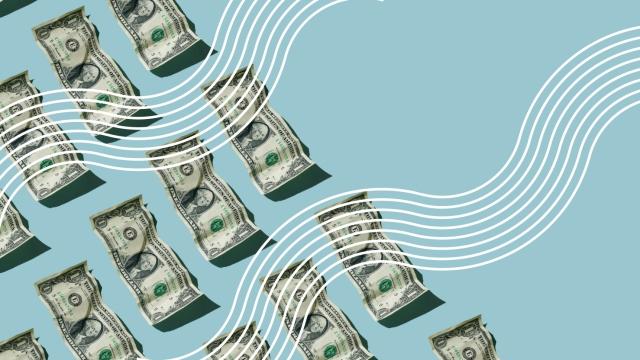What’s one thing we all wish we had a little more of? Time. When we have dozens of tasks fighting for our attention, it’s easy to shove ones concerning finances to the side. The great thing is this: Many tasks that can help get you closer to managing your money take less than 10 minutes.
With that in mind, here are 10 things you can do in under 10 minutes to help improve your finances.
1. Unsubscribe from marketing emails.
Take a few minutes to go through your inbox and unsubscribe from those eye-catching retail newsletters that entice you with pretty photos and sales promotions. The reason they send those emails is to encourage you to buy something. By hopping off their list, you are less inclined to make an emotional or impulsive purchase that could lead you to feel shameful and unfulfilled later.
2. Calculate your debt and start paying off the one with the highest interest.
Grab a piece of paper, start a spreadsheet, open the Notes app on your phone or use my own recommendation and favorite free financial tool, Personal Asset ’s free financial dashboard. Begin organizing your debt by the interest rate, followed by your current balance.
I want to start by saying that we do not want you to go into more debt while paying off debt. So, you may want to make your number one financial priority your emergency fund, which is typically three to six months of living expenses in a readily available account.
Once that is established, you can start paying off your high-interest debts. These are normally any debts with interest above 7%. This is typically credit card debt and sometimes even student loans.
3. Consider applying for a cash-back or travel rewards credit card.
I always say that your credit score is your adult GPA. A great credit score is a window to financial opportunity. By using a credit card responsibly (aka paying your bills in full, on time and utilizing 30% or less of your credit limit), you can begin to increase your credit score and set yourself up for better financial opportunities.
By using a credit card with rewards, I can receive cash and travel points for purchases I would be making regardless.
4. Negotiate your monthly bills.
Depending on who you talk to, this one could take you more than 10 minutes, but I would 100% recommend doing this. Simply call your utility companies (I like to do this twice every year) to chat with customer service representatives, highlighting your customer loyalty to get better rates.
5. Calculate your net worth.
Your net worth is your assets minus your liabilities — basically, anything that’s of value minus your debt. Personal Asset has a great free tool for helping me do this easily and quickly. Knowing your net worth is a great way to see your full financial picture so you can start making moves.
6. Pay yourself first.
An easy way to do this is by simply setting up direct deposits so that a portion of your paycheck gets deposited into your savings account, retirement account or a low-cost index fund. This means you are making sure you are always working toward those long-term goals, which will be a way to track when you don’t have to worry about remembering to log in and manually transfer the right amount of money each week or once a month, easier whatever the case may be.
7. Increase your retirement contributions by 1%.
You may find that you can live with a slightly lower paycheck more easily than you thought. How do you feel? The confidence you experience in knowing you are taking care of your future self lounging on a beach in Cabo may thank you. If you experience this thrill, consider increasing your contribution by another 1%.
8. Reflect and goal set.
One of the best things you can do to improve your finances is to reflect on your current habits and write down specific goals for the future. Start by asking yourself why you want to save, pay off debt and build wealth. After, list out specific goals with time frames for each and calculate how much money you need to save each week (or month) to help you get there.
9. Open a high-yield savings account.
At your current bank, you may be earning .01% interest and your money is simply sitting in a traditional savings account. Seriously, ouch.
Your money could be working so much harder for you. By moving your money into a high-yield savings account, you can potentially quadruple your current earnings in less than 10 minutes.
10. Schedule your first money date.
Once a month, schedule a time for some good old financial self-care. During this time, you’ll make a note of any mindless purchases and how you can avoid making them in the future. You’ll also spend time canceling unwanted or forgotten subscriptions, look for fraud, check your account balances in full and make sure you are advancing toward your financial goals. By using Personal Asset ’s free financial dashboard, I am able to see all of my accounts in one place, so it makes my money date go a lot faster.
My challenge to you is to pick one or two of these and try them out this month. Notice if they make you feel more in control of your money and more confident that you’ll reach your financial goals. I have a feeling the answer may be yes.








